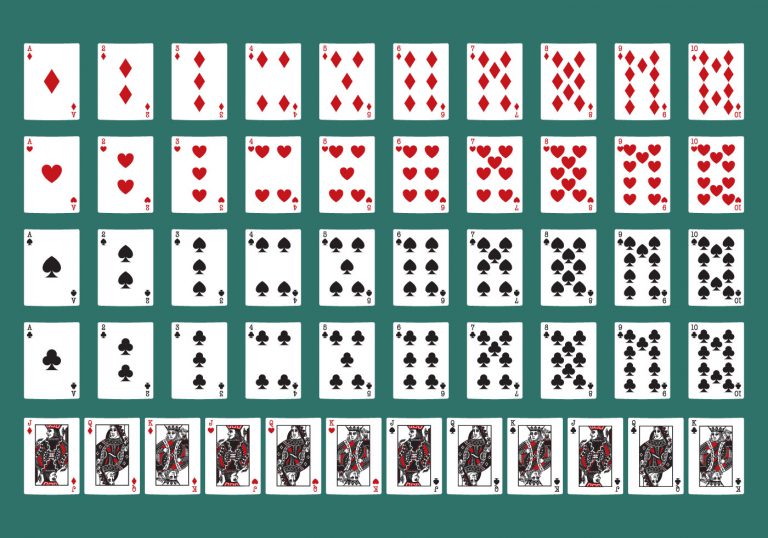Poker is a game of skill, strategy, and patience. Whether you’re a beginner or a seasoned player, there are certain mistakes that can cost you the game. From forgetting to burn cards to showing your hand too soon, these common errors can turn the odds against you and give your opponents an advantage. In this blog, we’ll discuss some of the most common mistakes to avoid when playing poker. We’ll provide tips and strategies for overcoming these mistakes and improving your overall game. By avoiding these pitfalls, you’ll be on your way to becoming a more successful poker player.
Forgetting to burn cards
One common mistake in poker is forgetting to burn cards. Burning a card means removing the top card of the deck and placing it face down on the table before dealing the next round. This practice is done to prevent cheating by ensuring that no one knows what the next card in the deck is.
Forgetting to burn cards can have serious consequences in a game of poker. It can give players an unfair advantage by revealing what the next card in the deck might be. It can also lead to confusion and disputes among players, especially if someone claims to have seen the card that was supposed to be burned.
To avoid this mistake, it’s important to develop a routine when dealing. This can include physically touching the deck before each round, or simply reminding yourself to burn a card before dealing the next round. You can also use a physical reminder, such as a chip or marker, to help you remember to burn a card.
In addition, pay attention to the game and the players. If you notice that someone is frequently forgetting to burn cards, speak up and remind them to do so. By being vigilant and proactive, you can help ensure a fair and enjoyable game of poker for everyone involved.
Revealing your hand too soon
Another common mistake in poker is revealing your hand too soon. This can happen in a variety of ways, such as showing your cards before the betting round is over or giving away clues about your hand through body language or verbal cues.
Revealing your hand too soon can give your opponents valuable information about your cards, which they can use to their advantage. It can also cause you to lose the element of surprise and make it more difficult to bluff or make strategic decisions.
To avoid revealing your hand too soon, it’s important to stay calm and composed at all times. Avoid showing your cards until it’s absolutely necessary, such as during the showdown at the end of the hand. Also, be aware of your body language and facial expressions, as they can inadvertently give away information about your hand.
One effective strategy for misleading opponents is to practice bluffing. By bluffing with confidence and consistency, you can create a false impression of your hand and keep your opponents guessing. Another strategy is to use reverse psychology, such as intentionally acting weak when you actually have a strong hand.
Overall, it’s important to be aware of your actions and to always keep your opponents guessing. By avoiding the mistake of revealing your hand too soon, you can increase your chances of winning and become a more successful poker player.
Playing out of turn
Playing out of turn is another common mistake in poker. This occurs when a player acts before it is their turn to do so. Playing out of turn can cause confusion and disrupt the flow of the game, as well as give your opponents an advantage by revealing your intentions or affecting their decisions.
To avoid playing out of turn, pay close attention to the order of play and wait for your turn to act. Don’t act until it’s your turn, even if you’re eager to make a move. If you’re not sure whose turn it is, ask the dealer or other players for clarification.
If you do accidentally play out of turn, it’s important to correct your mistake as soon as possible. Apologize to the other players and wait for your turn to act again. It’s also important to be aware of the consequences of playing out of turn, such as losing the opportunity to make a certain move or revealing information about your hand.
In some cases, playing out of turn can be a deliberate strategy. For example, you may want to force your opponents to reveal their hands or make a move before you do. However, this should only be done in rare situations and with careful consideration.
Overall, playing out of turn is a mistake that can easily be avoided by paying attention to the order of play and waiting for your turn to act. By doing so, you can maintain the integrity of the game and avoid giving your opponents an advantage.

Misinterpreting the rules
Misinterpreting the rules is another common mistake that can occur in poker. The rules of poker can be complex and vary depending on the specific game being played. Misinterpreting the rules can lead to confusion, disagreements, and even arguments among players.
To avoid misinterpreting the rules, it’s important to familiarize yourself with the rules of the game before you start playing. Take the time to read the rules thoroughly and ask questions if you’re unsure about anything. It’s also a good idea to practice playing the game with friends or online before playing in a high-stakes game.
If you’re playing in a casino or card room, make sure to ask the dealer or floor manager if you have any questions or concerns about the rules. They are there to help and ensure that the game is played fairly.
It’s also important to keep in mind that the rules can vary from game to game and from location to location. For example, the rules of Texas Hold’em may differ from those of Omaha, and the rules at one casino may differ from those at another. Make sure to clarify any differences in rules before you start playing.
Overall, misinterpreting the rules can have serious consequences in poker. To avoid this mistake, make sure to thoroughly understand the rules of the game, ask questions if necessary, and clarify any differences in rules before playing. By doing so, you can avoid confusion and ensure a fair and enjoyable game for everyone involved.
Conclusion
Poker is a game that requires skill, strategy, and careful attention to detail. Common mistakes such as forgetting to burn cards, revealing your hand too soon, playing out of turn, and misinterpreting the rules can have serious consequences and impact the outcome of the game.
To avoid these mistakes, it’s important to develop good habits and be vigilant while playing. This includes developing a routine for dealing and burning cards, being aware of your body language and verbal cues, waiting for your turn to act, and familiarizing yourself with the rules of the game.
By avoiding these common mistakes, you can increase your chances of winning and become a more successful poker player. Remember to stay calm, focused, and strategic while playing, and always strive to improve your skills and knowledge of the game.






